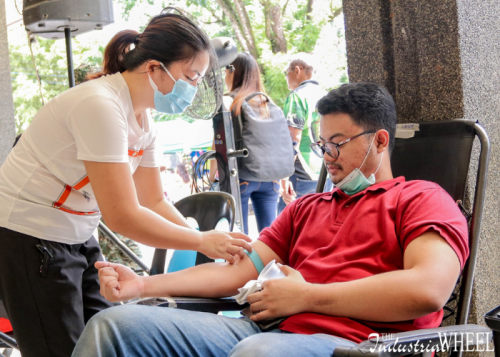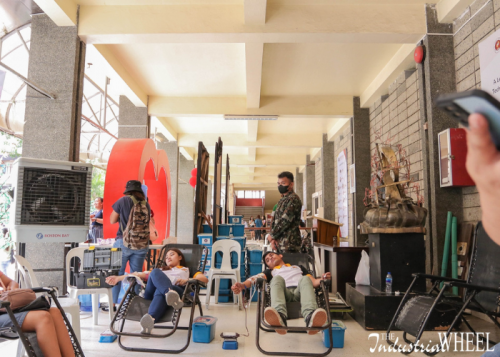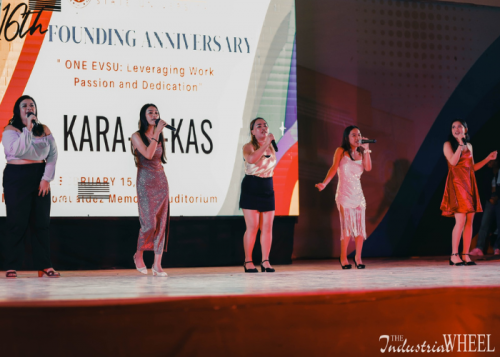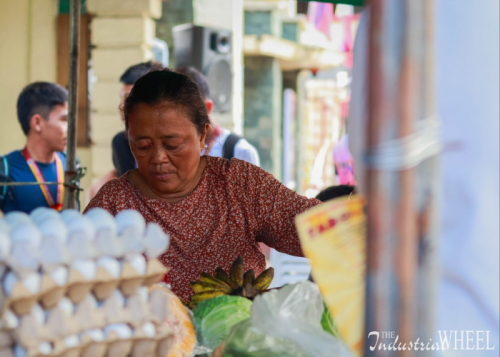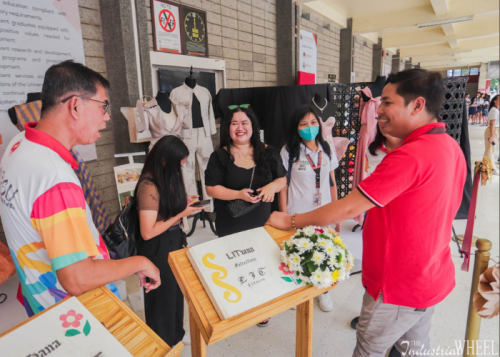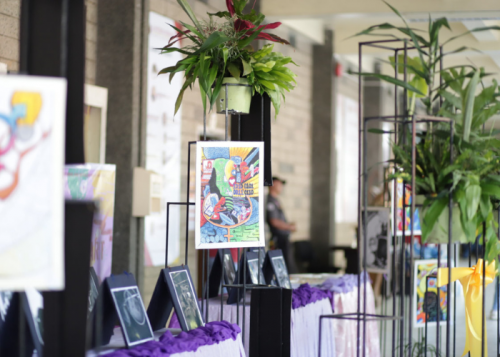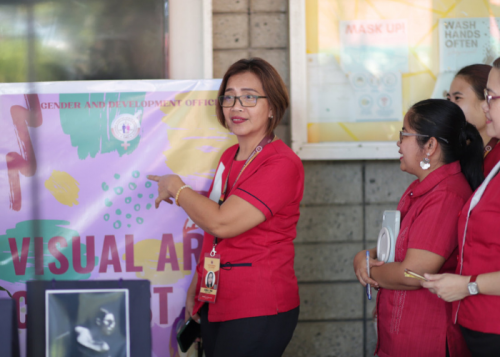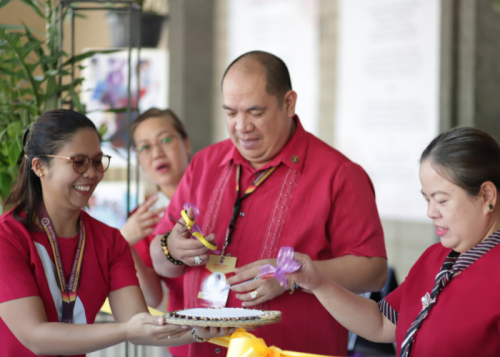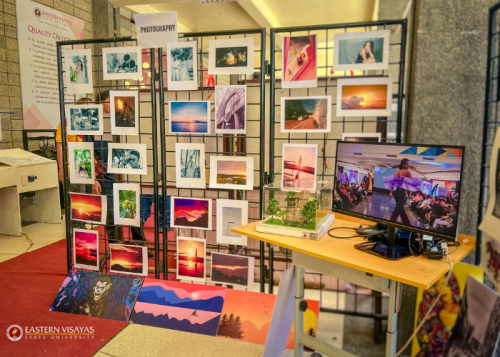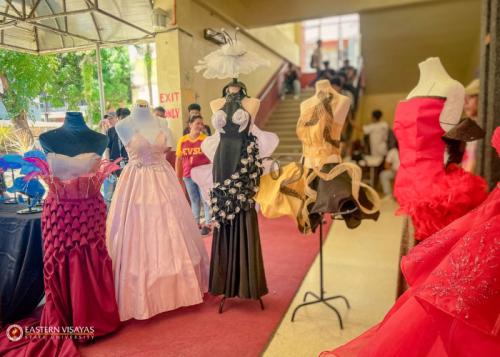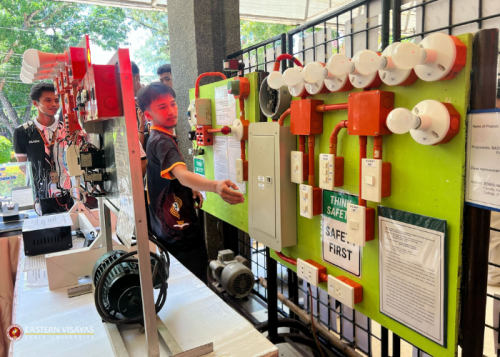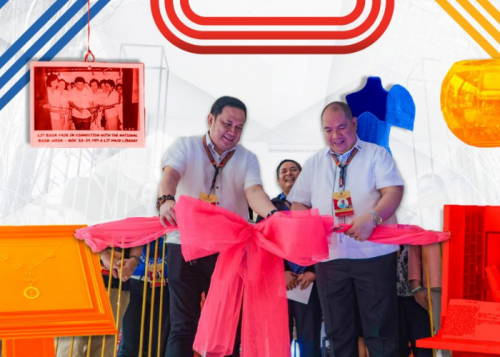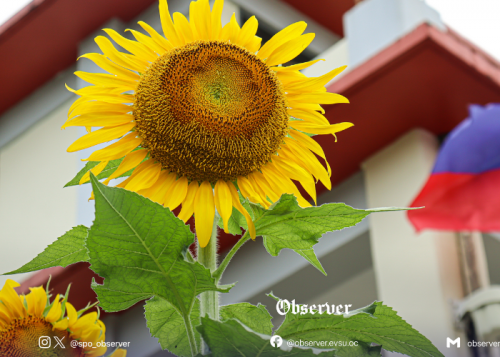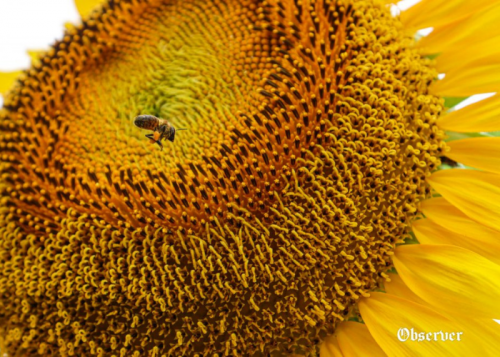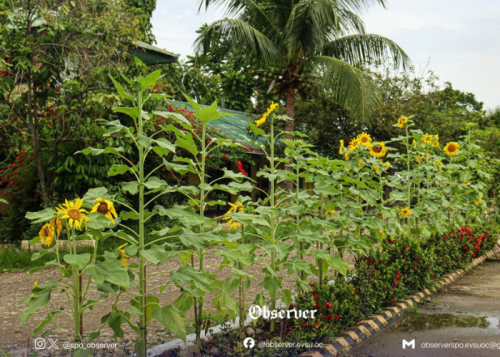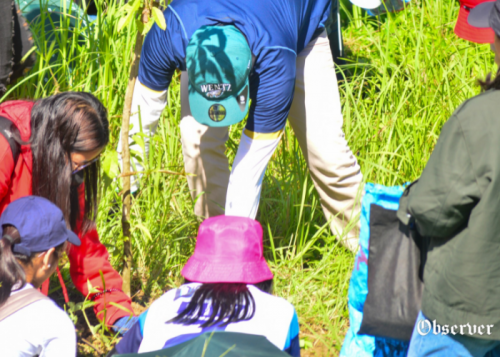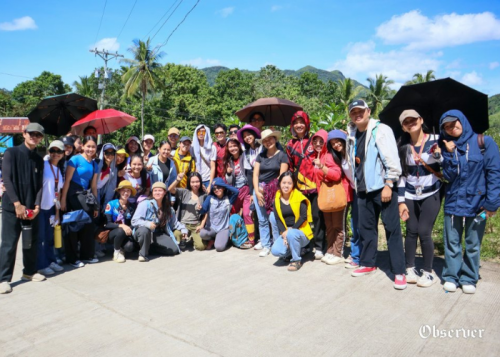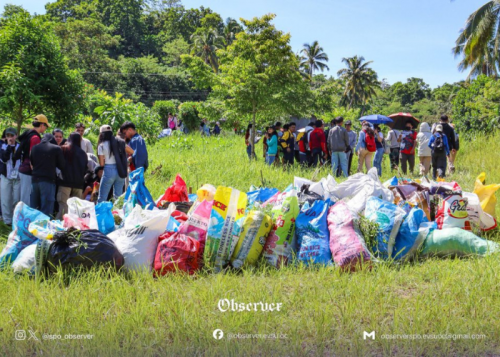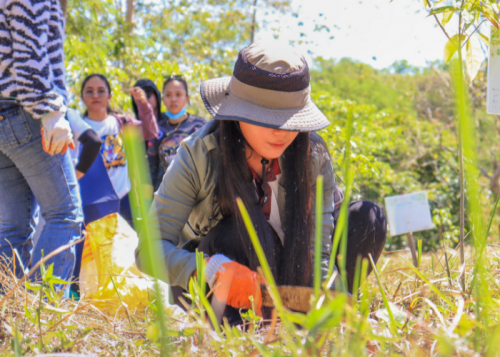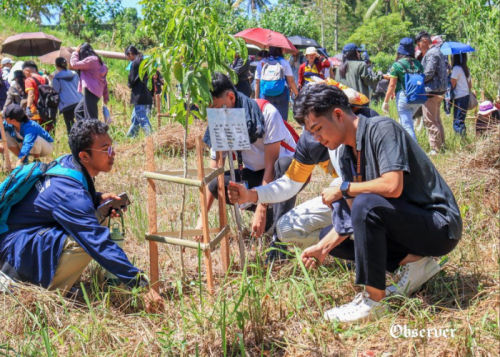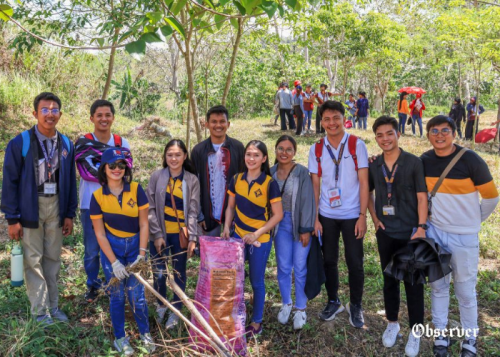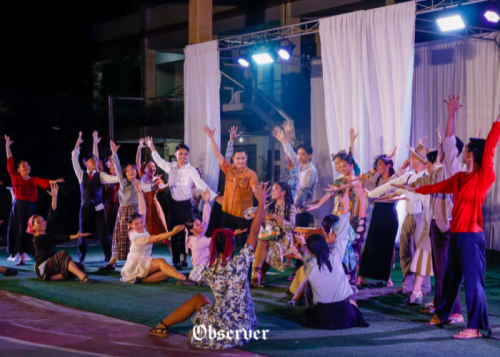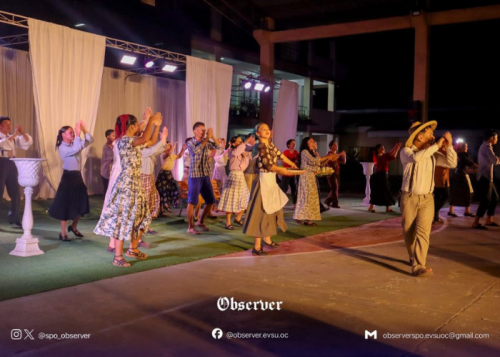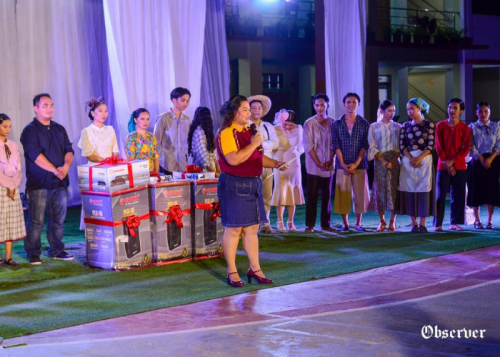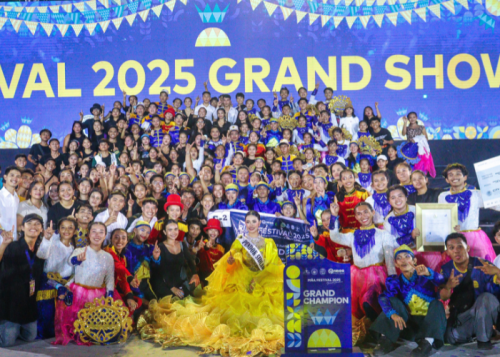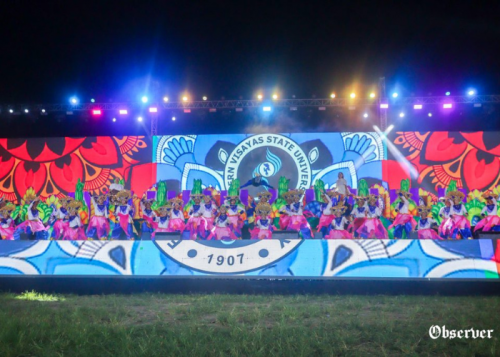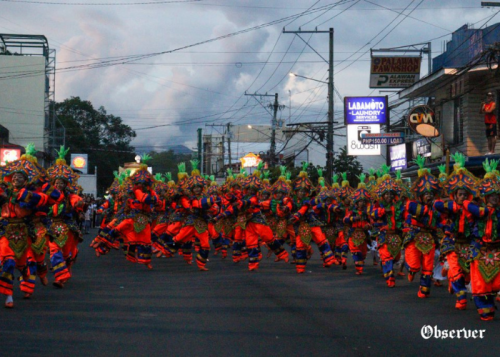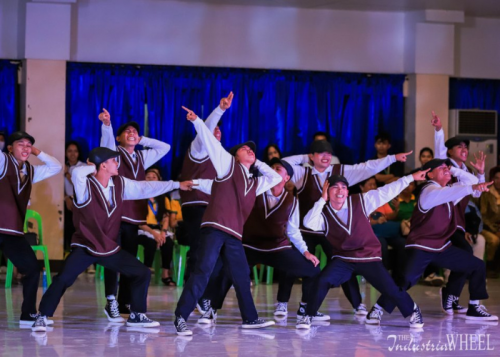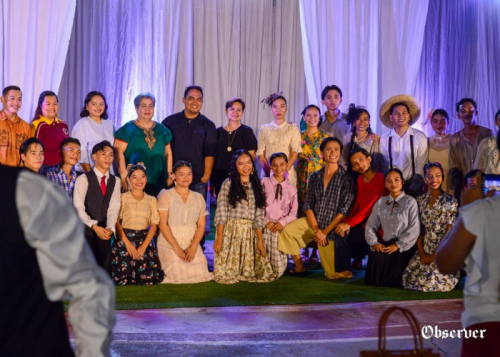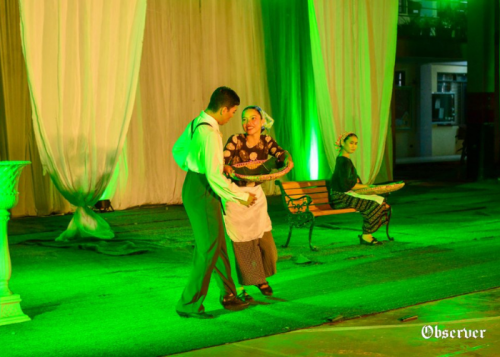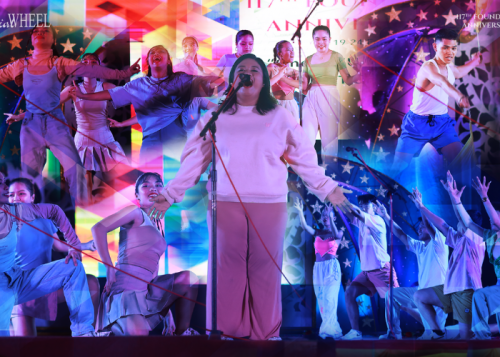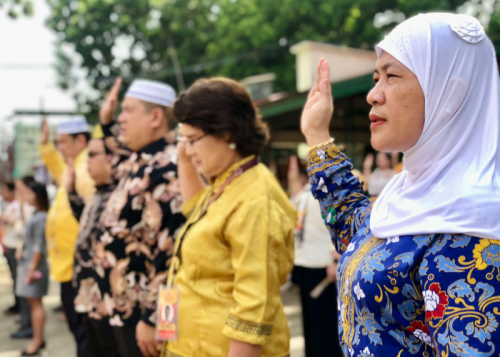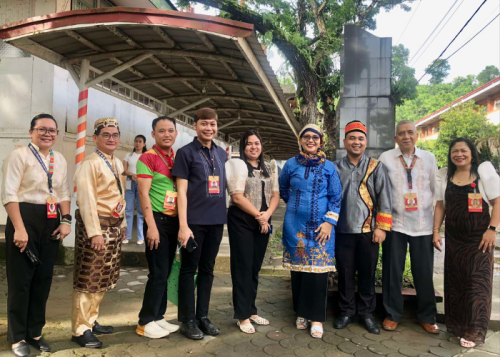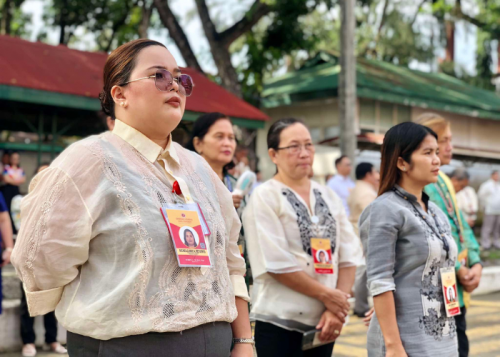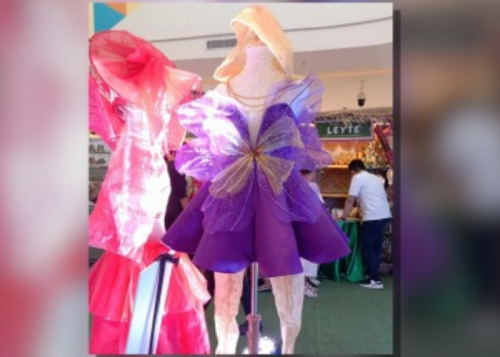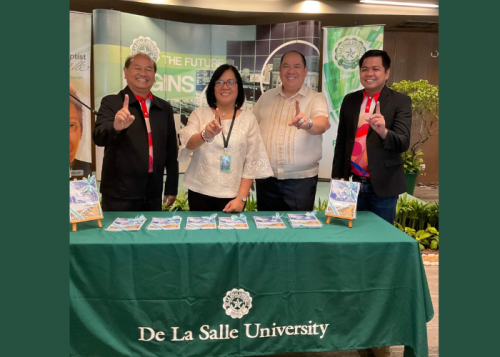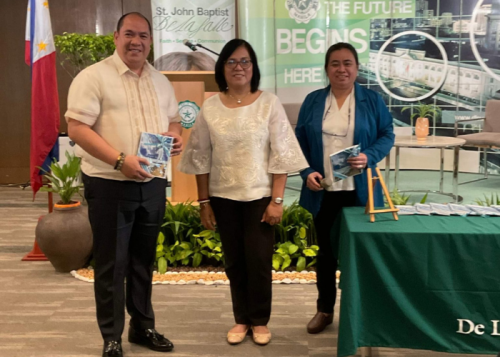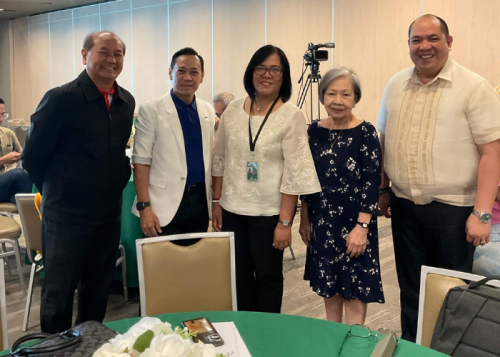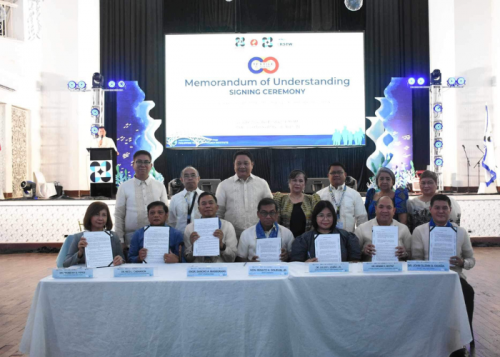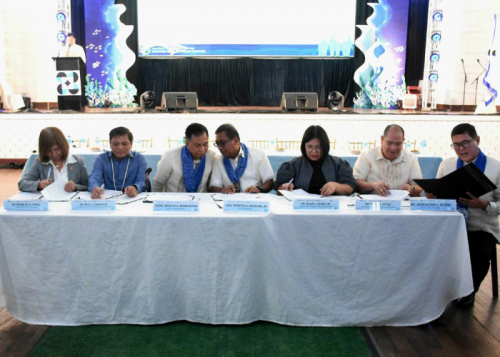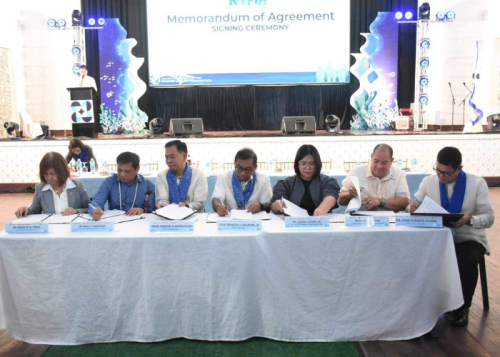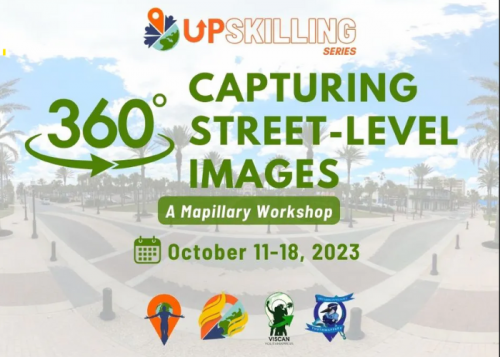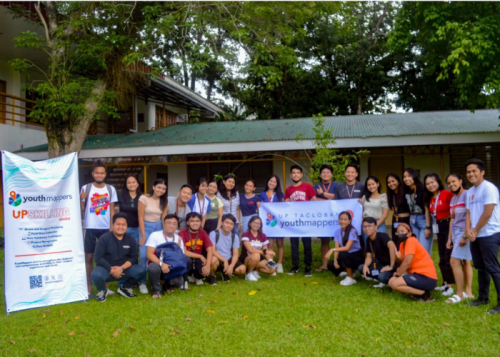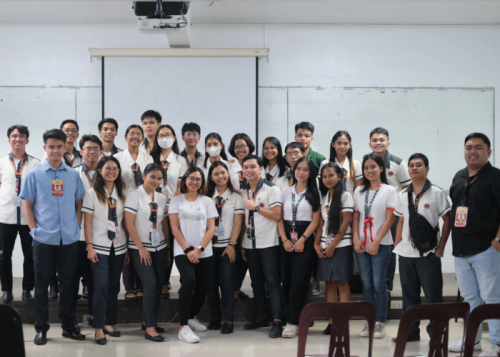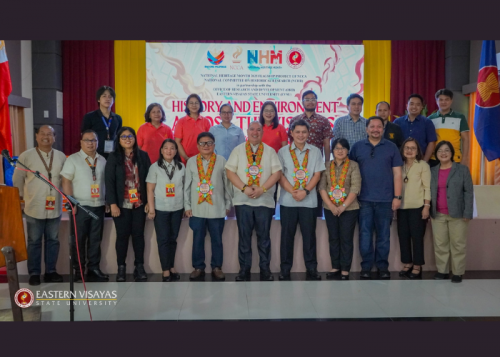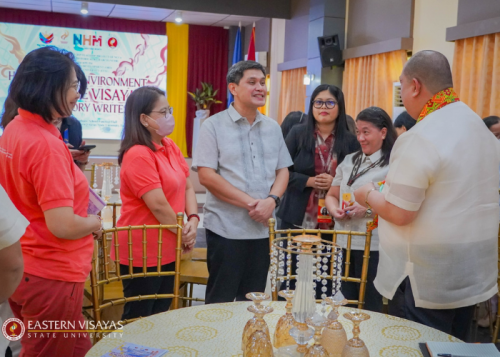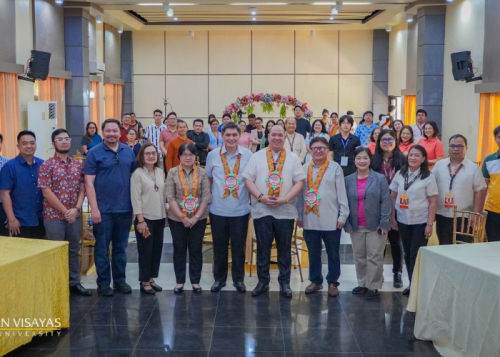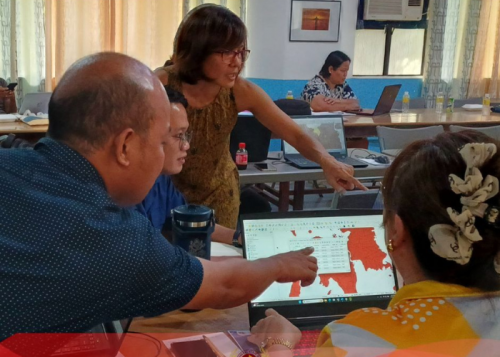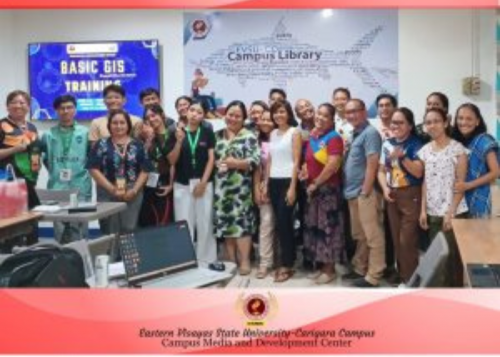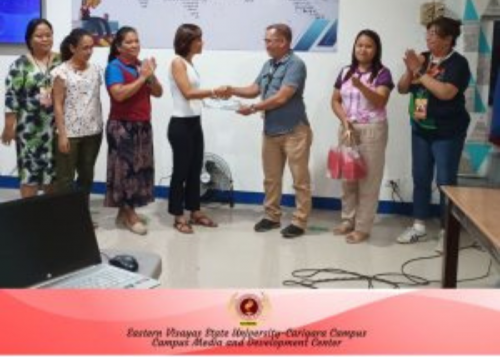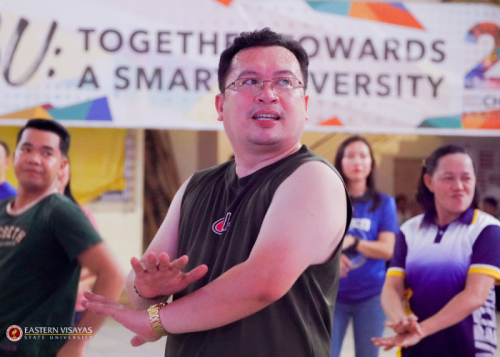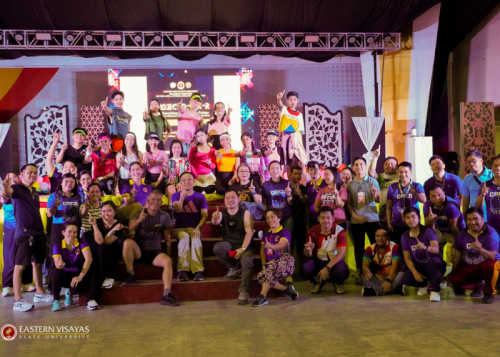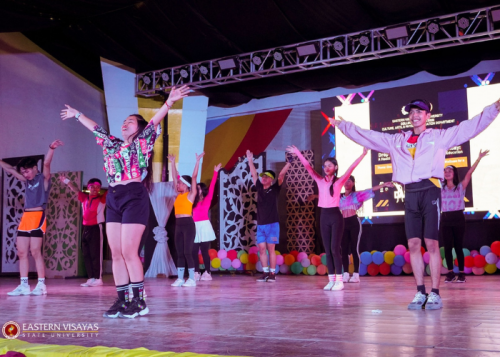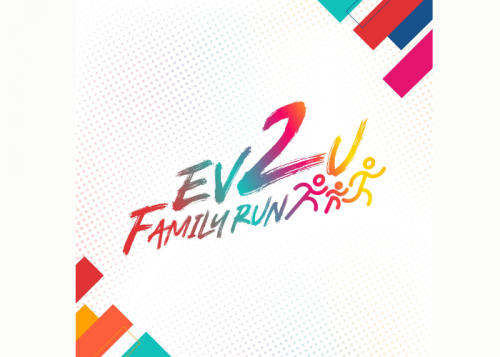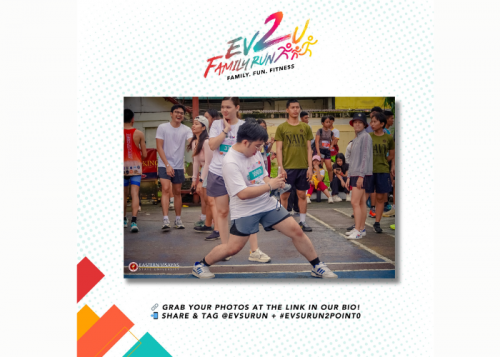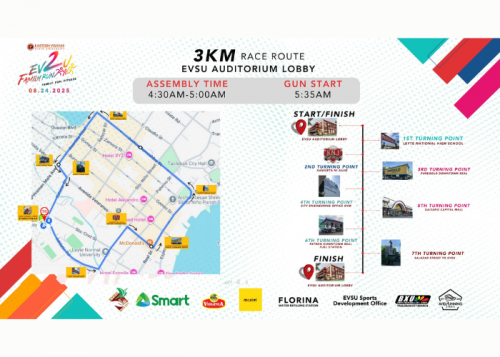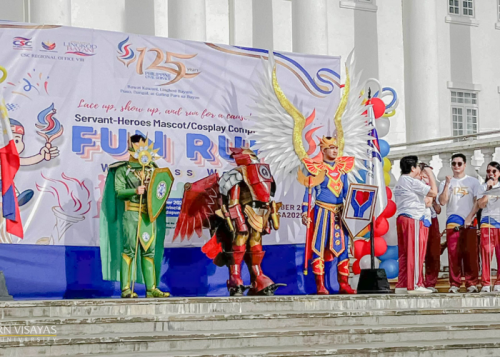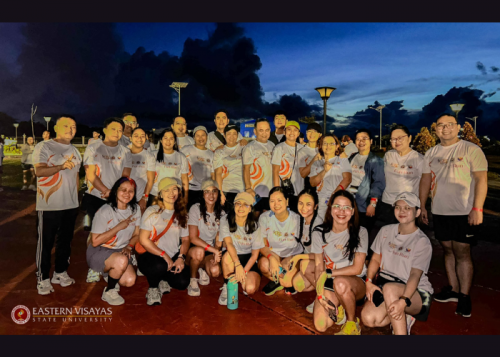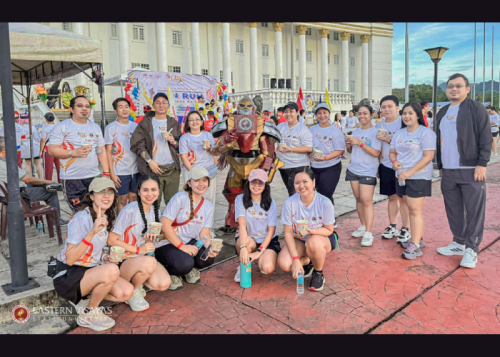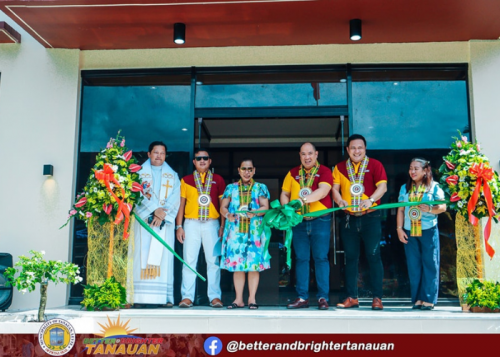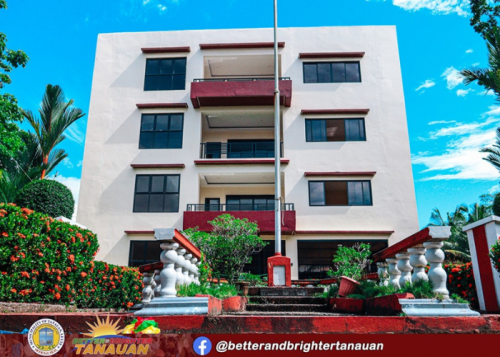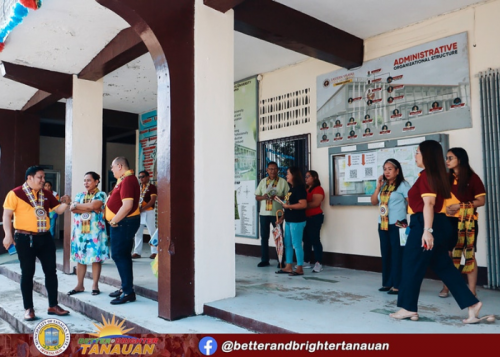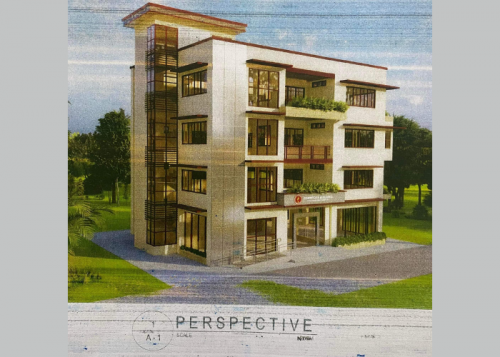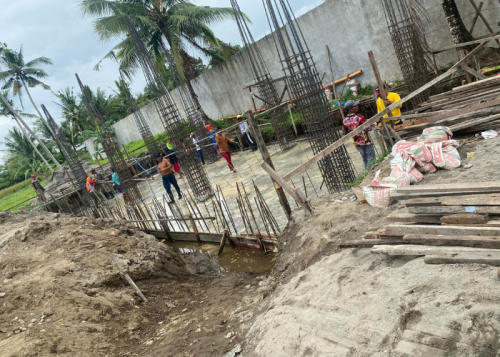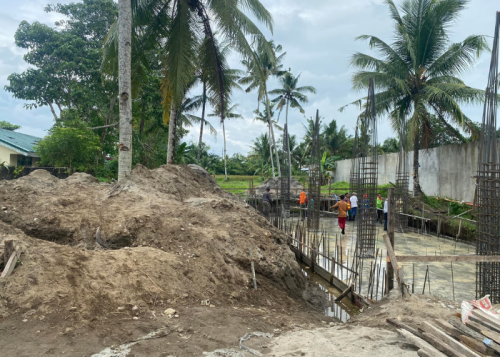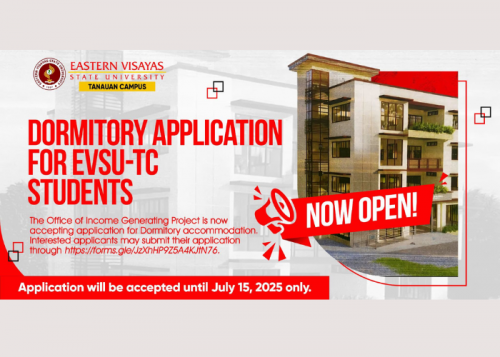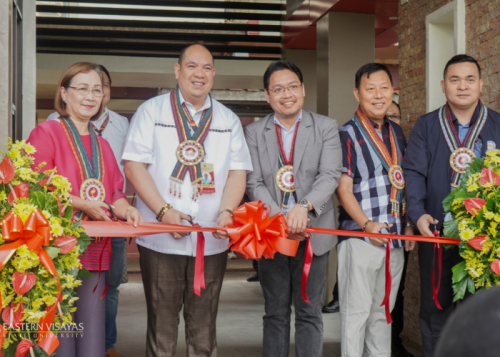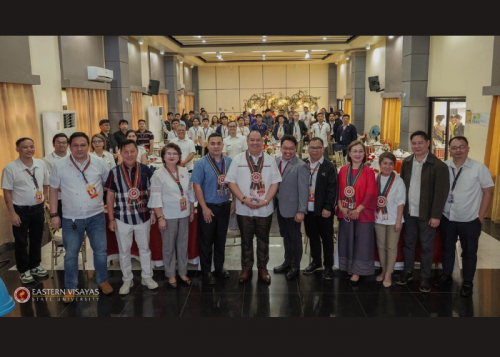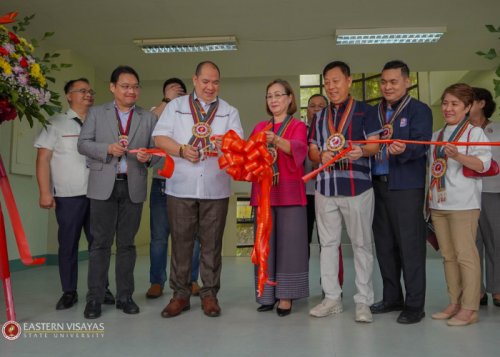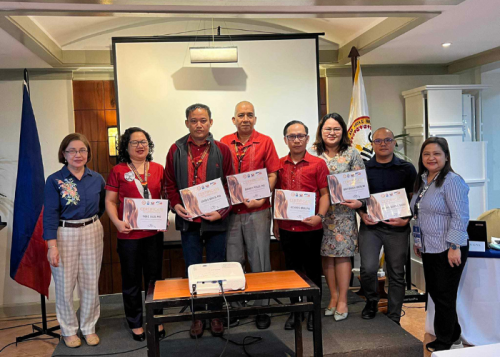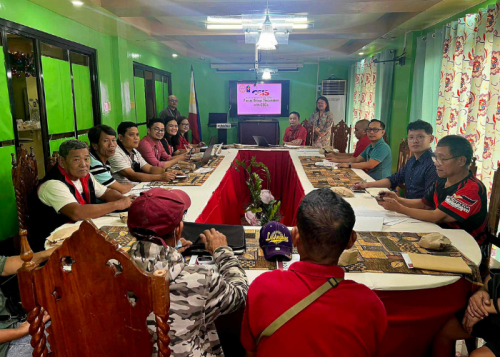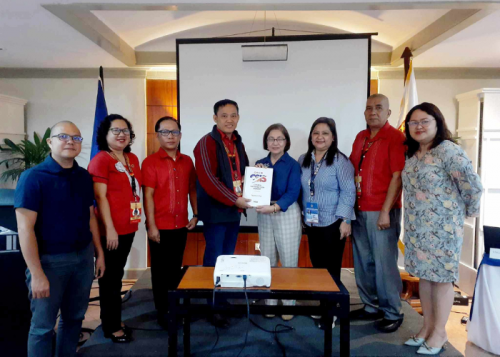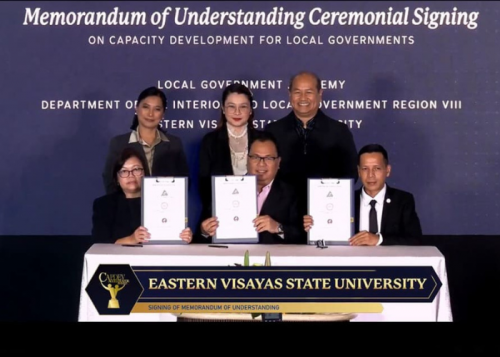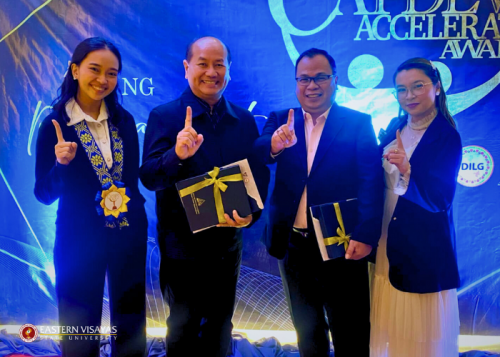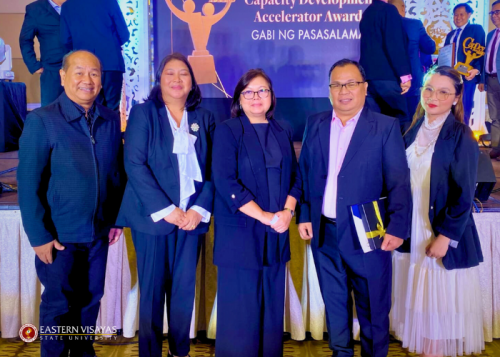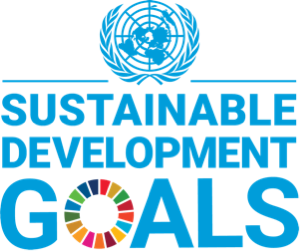Policy Statement
Pursuant to the Urban Development and Housing Act (R.A. 7279), the Green Building Code of the Philippines, the Philippine Disaster Risk Reduction and Management Act (R.A. 10121), and aligned with the UN 2030 Agenda, Eastern Visayas State University (EVSU) commits to building resilient, inclusive, and sustainable campuses and communities that serve as living laboratories for sustainable urban development in the Eastern Visayas region.
EVSU shall:
Develop climate-resilient and eco-friendly campuses by adopting green building standards, renewable energy solutions, sustainable transport systems, and resource-efficient designs.
Integrate disaster risk reduction and climate change adaptation into campus planning, facilities management, curricula, and community extension programs to strengthen resilience against natural and human-induced hazards.
Integrate disaster risk reduction and climate change adaptation into campus planning, facilities management, curricula, and community extension programs to strengthen resilience against natural and human-induced hazards.
Strengthen community-based urban resilience initiatives through partnerships with local governments, industries, and civil society to promote sustainable housing, waste management, and resource-efficient livelihood systems.
Advance research and innovation in sustainable development by producing knowledge, technologies, and policy recommendations that address urban-rural challenges, climate-smart settlements, and circular economy practices.
Engage students, faculty, and stakeholders in civic responsibility by implementing outreach, volunteerism, and community development projects that foster sustainability values and participatory governance.
Institutionalize campus-community partnerships as models of smart, inclusive, and sustainable communities, demonstrating best practices in climate adaptation, environmental stewardship, and cultural preservation.
Promote heritage and cultural sustainability by safeguarding local traditions, indigenous knowledge systems, and cultural assets in harmony with sustainable urban growth.
Through these commitments, EVSU envisions itself as a beacon of sustainable development and urban resilience, cultivating empowered graduates, innovative research, and model communities that inspire sustainable living practices across Eastern Visayas and beyond.
Support of arts and heritage
Public Access to Buildings and Cultural Heritage Sites
Eastern Visayas State University (EVSU) upholds its social responsibility and commitment to cultural preservation by ensuring that its significant buildings, heritage landmarks, and open spaces are freely accessible to the public. The University recognizes that higher education institutions play an essential role in promoting inclusivity, cultural appreciation, and community engagement by sharing their physical and historical assets with the wider community.
EVSU’s campuses are designed as open and welcoming environments that encourage public interaction and learning beyond the academic community. The University provides free access to its key institutional buildings of cultural and architectural value, such as the EVSU Main Administration Building, an enduring symbol of post-war educational reconstruction in Eastern Visayas, and other heritage structures that reflect the institution’s rich historical and educational legacy like the Women’s Technology and Gabaldon Buildings. These spaces are regularly visited by students, alumni, local residents, researchers, and tourists for academic, cultural, and civic purposes.
Moreover, EVSU’s landscaped grounds and open spaces serve as public commons where community members can gather for recreation, reflection, and cultural events. The University also hosts educational tours, heritage walks, and public exhibitions to foster appreciation of local history, art, and sustainable architecture.
EVSU stages cultural events such as the KARA-SI-KAS concert (Founding Anniversary) held at the Miguel Romualdez Memorial Auditorium — an example of a campus venue used for open cultural programming. The KADIWA Trade Fair Exhibit as part of Charter/Founding celebrations, usually is held and is opened to the public on campus grounds to show campus spaces are used as public cultural/economic meeting places.
Through its policy of open and free public access to significant university buildings and heritage areas, EVSU strengthens its role as a steward of cultural heritage, contributing to the United Nations Sustainable Development Goals (SDGs)—particularly SDG 11: Sustainable Cities and Communities—by promoting inclusive, safe, and accessible public spaces that celebrate education, culture, and community identity.
Public access to libraries
Eastern Visayas State University (EVSU) upholds its commitment to inclusive education and lifelong learning by providing automatic free public access to its libraries across all campuses. Guided by its mandate as a public higher education institution, EVSU ensures that knowledge resources are not confined to enrolled students and faculty but are also available to the wider community — educators, researchers, alumni, and local residents seeking learning opportunities.
The University demonstrates public access to libraries by ensuring broad access to library resources, including books and publications, with a strong focus on inclusivity and convenience for its academic community. The University Library offers automatic, free access to licensed e-journals and e-books through institutional credentials, removing cost and technical barriers so students can study anytime and anywhere. To maximize awareness and use, the library conducts orientations that guide students through searching and downloading resources, then reinforces these efforts with announcements on its social media pages and posts on campus bulletin boards. Access is supported by ongoing evaluation: subscription platforms generate usage statistics that the library regularly reviews to understand demand. The library also conducts quick satisfaction surveys via QR code to gather feedback on relevance, ease of use, and service quality. By combining free digital access with active outreach and data-informed collection management, EVSU lowers the cost of learning, supports remote and commuting students, and strengthens equitable access to scholarly information across disciplines.
Provide public access to museums, exhibition spaces or galleries, or works of art and artefacts
Eastern Visayas State University provides free public access to on-campus galleries and exhibition spaces. The Administration Lobby hosts the Hall of Topnotchers, a display celebrating licensure examination achievers that is open to walk-in visitors during campus hours with no admission fee and no reservation required. The College of Engineering’s Hall of Achievers is an active indoor gallery along a ground-floor corridor that features portraits of board-exam top placers; it is easy to find, step-free, and likewise free to view. Across the year, EVSU also mounts pop-up and rotating exhibitions that showcase student and faculty work and other departmental showcases, including textiles, fashion, photography, research posters, culinary models, learning exhibits, and not limited to. These displays are located in publicly accessible corridors, lobbies, and rooms, and are supported by open seating, and faculty or student stewards who encourage interaction and learning. Families, alumni, partner schools, and community guests regularly visit for heritage appreciation, career motivation, and student inspiration. The university also features licensure topnotchers, galleries, and works of art on its official social media account, extending free public access and inviting wider community engagement. Together, these practices demonstrate EVSU’s sustained commitment to widening cultural access, celebrating local creativity and scholarship, and fostering pride in the university’s achievements through publicly accessible, no-cost galleries.
Public access to green spaces
Eastern Visayas State University (EVSU) ensures permanent and free public access to its open and green spaces across all campuses as part of its commitment to sustainability, inclusivity, and community well-being. The university’s main campus in Tacloban City and its extension campuses in Burauen, Ormoc, Carigara, Tanauan, and Dulag feature expansive landscaped areas, botanical gardens, eco-parks, and shaded walkways that are open to students, employees, and the general public without restrictions or fees. These green spaces serve as shared community zones for recreation, environmental education, and wellness activities.
Under the National Greening program of the University, Article 66 of the 2017 Revised Students Handbook of Eastern Visayas State University, EVSU’s green campus initiatives are complemented by the policy to institutionalize tree-planting drives, campus greening programs, and sustainable landscaping projects under the “Green University” campaign. The open quadrangles, mini-forests, and plant-filled courtyards within the university also serve as living laboratories for environmental science and landscape architecture students, further enhancing their educational and community value.
Through these initiatives, Eastern Visayas State University reaffirms its dedication to making its campuses accessible, sustainable, and environmentally enriching spaces for the public—free of charge and open year-round.
Arts and heritage contribution
Eastern Visayas State University (EVSU) plays an active role in supporting and showcasing local arts and heritage through frequent public performances and cultural programming. The University’s choirs, theatre groups, cultural dance and music ensembles stage multiple performances annually—both as part of official institutional functions (such as Founding Anniversary, Charter Day, and other special ceremonies) and through dedicated arts festivals and student-led events open to the campus and surrounding community.
EVSU maintains institutional support for arts and culture via its Culture Affairs Office and campus-based arts coordinators (e.g., in Ormoc, Carigara, Burauen, Tanauan). These groups organize workshops, rehearsals, and public concerts by choir, orchestra, and theatre. Under the Article 31 of the 2017 revised Students Handbook of Eastern Visayas State University specifically the policy for Cultural Arts programs of the University, the Koro Waraynon”, Samleyaw Performing Arts, Habaynon Dance Corps, Drum & Bugle Corp, theatre groups regularly contribute to heritage and folkloric dance enactments, visual arts exhibits, and music recitals that draw upon local and regional cultural traditions of Eastern Visayas.
Eastern Visayas State University (EVSU) plays an active role in supporting and showcasing local arts and heritage through frequent public performances and cultural programming. The University’s choirs, theatre groups, cultural dance and music ensembles stage multiple performances annually—both as part of official institutional functions (such as Founding Anniversary, Charter Day, and other special ceremonies) and through dedicated arts festivals and student-led events open to the campus and surrounding community.
Record and Preserve Cultural Heritage at Eastern Visayas State University
Eastern Visayas State University (EVSU) is deeply committed to safeguarding the rich cultural and historical legacy of the Eastern Visayas region. Anchored in its mission to advance education that is culturally grounded and socially responsive, the University implements various initiatives that record, preserve, and promote intangible cultural heritage including local folklore, traditions, languages, and indigenous knowledge systems.
Cultural Heritage Exhibitions and Archives
EVSU established a Heritage and Memorabilia Exhibit as part of its Founding Anniversary celebration, showcasing historical artifacts, photographs, and archival materials that narrate the University’s evolution and its role in regional development. This ongoing exhibition serves as a public archive for preserving institutional and community history.
Performing Arts and Oral Traditions Revival
The University regularly stages performances that celebrate the region’s oral and performance traditions. Events such as “Sangpit sa Kagahapon: A Night of Culture Concert” feature music, dances, and theatrical productions that embody the folklore and lived experiences of the people of Eastern Visayas. Another is the annual KANYAW, sing-and-dance competition (“Kanta at Sayaw”) among colleges/campuses, faculty, and non-teaching staff. These performances serve both as creative preservation and intergenerational transmission
Cultural Heritage Exhibitions and Archives
Read Full ArticleEVSU established a Heritage and Memorabilia Exhibit as part of its Founding Anniversary celebration, showcasing historical artifacts, photographs, and archival materials that narrate the University’s evolution and its role in regional development. This ongoing exhibition serves as a public archive for preserving institutional and community history.
Creative Heritage Showcases
Read Full ArticleThrough student-led exhibitions such as Rayhak Sinirangan, EVSU celebrates fashion and design inspired by traditional arts and crafts of Eastern Visayas. These showcases reinterpret local heritage through modern creative expressions, connecting tradition with innovation.
Community-Based Cultural Documentation
EVSU’s community engagement programs include collaborations with local government units and community organizations to document local practices, indigenous knowledge, and traditional crafts. These initiatives contribute to cultural mapping efforts that record endangered expressions of local heritage.
Expenditure on arts and heritage
| Expenditure on arts and heritage | 2023 | 2024 | 2025 |
|---|---|---|---|
| University Expenditure | |||
| University expenditure on arts and heritage |
Eastern Visayas State University (EVSU) demonstrates strong institutional commitment to the promotion, preservation, and celebration of arts and cultural heritage through consistent allocation of funds for heritage exhibitions, creative programs, and archiving initiatives. The university integrates cultural investments into its annual institutional and campus budgets, supporting both tangible and intangible heritage activities.
These consistent expenditures affirm EVSU’s role as a cultural steward and creative hub in Eastern Visayas. By investing in arts and heritage, the university not only preserves institutional memory but also strengthens cultural identity, creative expression, and community engagement—key pillars of sustainable development in education.
EVSU’s Sustainable Practices Targets for Commuting and Active Mobility
Eastern Visayas State University is committed to advancing sustainable commuting through programs that integrate environmental responsibility, wellness, and community spirit. Through initiatives like Wellness Friday, Fun Run for a Cause, and CSC Fun Run, EVSU demonstrates that active mobility is both a sustainability strategy and a lifestyle choice empowering its academic community to move toward a cleaner, healthier, and more sustainable future.
Wellness Friday Program
A weekly institutional initiative that promotes walking and active mobility within campus premises. Faculty, staff, and students are encouraged to engage in fitness-oriented commuting and physical activities that replace short-distance vehicle use with walking or cycling.
Fun Run for a Cause and CSC Fun Run
EVSU has organized its own Family Fun Run (e.g., EVSURun 2.0, 2025) as a branded institutional event, with registration, race categories, and community participation. Historically, EVSU’s fun run tradition dates to at least 2019, when more than 3,500 runners joined a 3K and 5K route during founding week celebrations.
Additionally, EVSU has engaged in the PCSA / CSC Fun Run, where the university was recognized (e.g. winning mascot competition), demonstrating institutional participation in civil service–led fun run events.
Performing Arts and Oral Traditions Revival
The Eastern Visayas State University (EVSU) Student Handbook outlines several traffic rules and regulations designed to manage vehicle use and promote a safer, more walkable campus environment. The University enforces designated parking areas, prohibiting motor vehicles from parking near classrooms and laboratories to reduce congestion and improve pedestrian safety. All students who bring vehicles to campus are required to obtain a Vehicle Gate Pass, and motor vehicles are allowed only within specific zones as defined by campus policy. These measures collectively restrict unnecessary private vehicle movement and serve as an institutional deterrent against excessive car use, encouraging more sustainable campus mobility. While EVSU does not yet have publicly documented formal carpool/shared-ride programs or incentives for walking/cycling commuting, these policies build a foundation for future implementation of such measures. The university could enhance this by introducing a car-pool matching scheme, prioritized parking / reduced fees for shared rides, and more bike-friendly infrastructure (e.g. secure bike parking, bike lanes).
Additionally, the Handbook includes a provision that prohibits motorcycles and bicycles from traversing the covered walk, a safety measure intended to prevent accidents and maintain pedestrian flow within campus walkways. While this rule primarily ensures safety rather than promoting non-motorized commuting, it underscores the University’s efforts to regulate the interaction between motorized and non-motorized transport within shared spaces.
Supporting these initiatives, EVSU has also developed the eMap, a mobile navigation application that allows users to trace routes and locate buildings within the main campus. This digital tool enhances accessibility and demonstrates that pedestrian pathways and walking routes are integrated into the campus layout—further supporting the institution’s commitment to safe, organized, and sustainable mobility.
Performing Arts and Oral Traditions Revival
Eastern Visayas State University (EVSU) actively promotes sustainable commuting and flexible work arrangements in alignment with the Civil Service Commission (CSC) Memorandum Circular No. 6, s. 2022, “Policies on Flexible Work Arrangements in the Government.” This national policy encourages state universities and government agencies to adopt flexible work and study setups that enhance productivity, uphold work–life balance, and contribute to environmental sustainability by reducing the need for daily commuting.
In compliance with these CSC provisions, EVSU has institutionalized a range of flexible work and learning arrangements that collectively minimize travel frequency and carbon emissions. The University implements online or asynchronous classes during long weekends holidays and travel disruptions, ensuring that students especially those from distant areas can continue learning without commuting to campus.
For employees, EVSU formally allows and promotes remote working arrangements through the adoption of Work-from-Home (WFH) schemes, compressed workweeks, and skeleton workforce setups. These arrangements enable faculty and staff to efficiently perform administrative, research, and instructional functions outside the campus. Under its “Friday Freeday” initiative, the University also implements compressed schedules and reduced on-campus operations every Friday, further decreasing transport fuel use and traffic congestion.
Through these initiatives, EVSU integrates flexible work and study practices as part of its institutional culture, advancing both employee welfare and environmental responsibility. By operationalizing the CSC’s flexible work policies, the University demonstrates its commitment to sustainability, energy conservation, and an adaptive work environment that supports both people and the planet.
EVSU Provides Affordable Housing for Employees
Eastern Visayas State University (EVSU) supports employee welfare and financial stability by providing access to affordable and secure housing opportunities for its personnel. Guided by its commitment to inclusive and sustainable development, the University implements programs that enable faculty and staff to obtain decent housing through both institutional and government-assisted mechanisms.
EVSU facilitates employee participation in the Pag-IBIG Fund Home Development Mutual Fund (HDMF) programs, ensuring that all regular personnel are members eligible for housing and multi-purpose loans at subsidized interest rates. Through coordination with the Pag-IBIG Tacloban Branch and the Civil Service Commission, the University assists employees in processing housing loan applications and verifying eligibility to make homeownership more attainable.
In the 2017 Revised Code of Eastern Visayas State University (EVSU), Chapter XLII, Article 108 explicitly provides that the university “shall participate in … Home Development Mutual Fund (Pag-IBIG)” alongside GSIS, PhilHealth, and other mandatory benefits for its academic and administrative personnel. This provision clearly demonstrates that EVSU formally recognizes Pag-IBIG membership and coverage as part of its institutional obligations under the Republic Act No. 9679 otherwise known as the “Home Development and Mutual Fund Law of 2009. It affirms the university’s commitment to remit employee contributions and ensure continuous membership coverage, thereby enabling personnel to access housing and multi-purpose loan benefits through the Pag-IBIG Fund.
By providing access to low-cost housing loans, facilitating government financial support, and offering limited on-campus accommodations, EVSU demonstrates its commitment to enhancing the well-being and economic resilience of its workforce ensuring that quality employment is supported by decent and affordable living conditions.
EVSU Provides Affordable Housing for Students
Eastern Visayas State University advances SDG 11, Sustainable Cities and Communities, by making off-campus living safer and more affordable through the Students Affairs and Services Office. SASO actively engages boarding-house owners and landlords, gathers clear information on location, room options, indicative rent, amenities, house rules, and contact details, and compiles these into a vetted list that students can easily compare. The list is disseminated through orientations and official channels so freshmen, transferees, and continuing students can secure housing that meets their needs and budget. Beyond listing, SASO monitors student welfare and safety by checking basic sanitation, crowding, visible hazards, and adherence to posted rules, then coordinates with landlords and relevant offices to resolve issues quickly. This student-centered approach supports inclusion for low-income and distant learners, encourages fair pricing, and helps foster safer neighborhoods around the university. As part of ongoing monitoring, SASO uses simple feedback forms so students can report concerns and recognize student-friendly housing owners; these inputs inform updates to the vetted list, guide follow-up actions, and strengthen overall safety and satisfaction
In addition, EVSU evaluate requests for on-campus accommodation, particularly for students at the satellite campuses or those affected by regional relocations. These arrangements help reduce commuting costs and ensure equitable access to affordable living spaces within the University’s areas of operation.
Institutional Documents
Pedestrian priority on campus
Eastern Visayas State University prioritizes pedestrians in campus circulation. Vehicle movements are controlled through one way entry points marked “Entrance Only/No Exit” and no parking barricades, while motorcycle only parking is placed away from main footpaths to reduce conflicts. High footfall zones, such as the administration frontage and academic blocks, feature clearly painted zebra crossings with curb ramps and covered walkways that provide step free, weather protected routes between buildings. Directional signs like “Exit This Way” guide drivers to appropriate egress points, further minimizing vehicle and pedestrian interactions. These measures, supported by curb markings and security enforcement, demonstrate EVSU’s commitment to a walkable, people first campus.
Institutional Documents
Local authority collaboration regarding planning and development
Eastern Visayas State University (EVSU) actively collaborates with local government units and relevant agencies to contribute to inclusive urban and community development planning, including initiatives that support access to affordable housing for residents and public sector employees. Through partnerships with LGUs, EVSU participates in consultative and planning activities related to land use, urban resilience, and community infrastructure, ensuring that development plans respond to the socio-economic needs of the local population.
Institutional Documents
Local authority collaboration regarding planning and development
Eastern Visayas State University (EVSU) actively collaborates with local government units and relevant agencies to contribute to inclusive urban and community development planning, including initiatives that support access to affordable housing for residents and public sector employees. Through partnerships with LGUs, EVSU participates in consultative and planning activities related to land use, urban resilience, and community infrastructure, ensuring that development plans respond to the socio-economic needs of the local population.
Institutional Documents
As a state university, EVSU also coordinates with government housing agencies such as the Home Development Mutual Fund (Pag-IBIG/HDMF) to facilitate access to affordable housing programs for its employees and eligible community stakeholders. By institutionalizing Pag-IBIG membership among all regular personnel, EVSU ensures that its workforce can benefit from government-subsidized housing loans and development assistance, aligning university practice with the broader housing and urban development agenda of the local government.
Further, EVSU’s community extension programs integrate housing-related capacity-building sessions in partnership with local authorities, particularly in areas affected by displacement or disaster vulnerability. These initiatives reflect EVSU’s role as a development partner in local planning processes and its commitment to promoting equitable access to housing and sustainable community development in Eastern Visayas.












